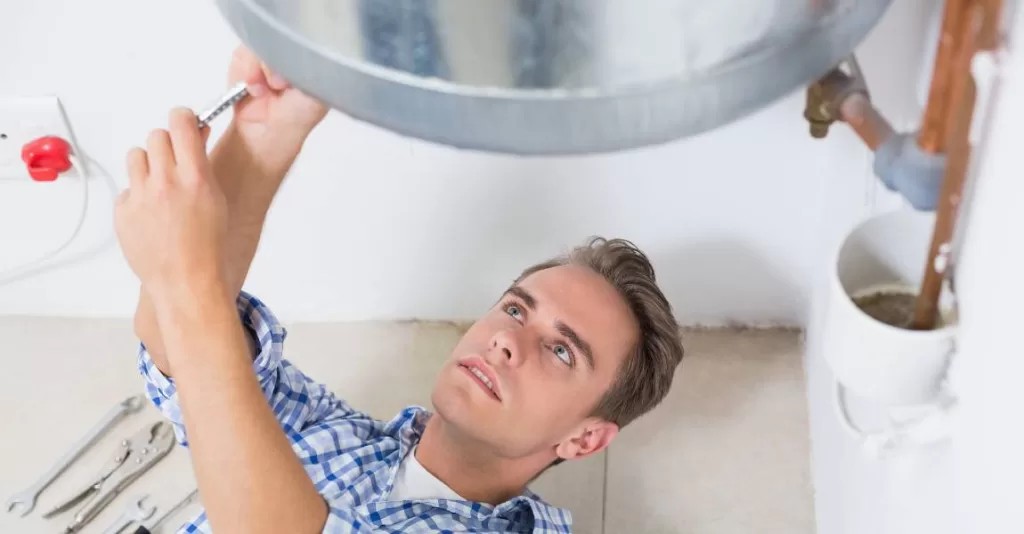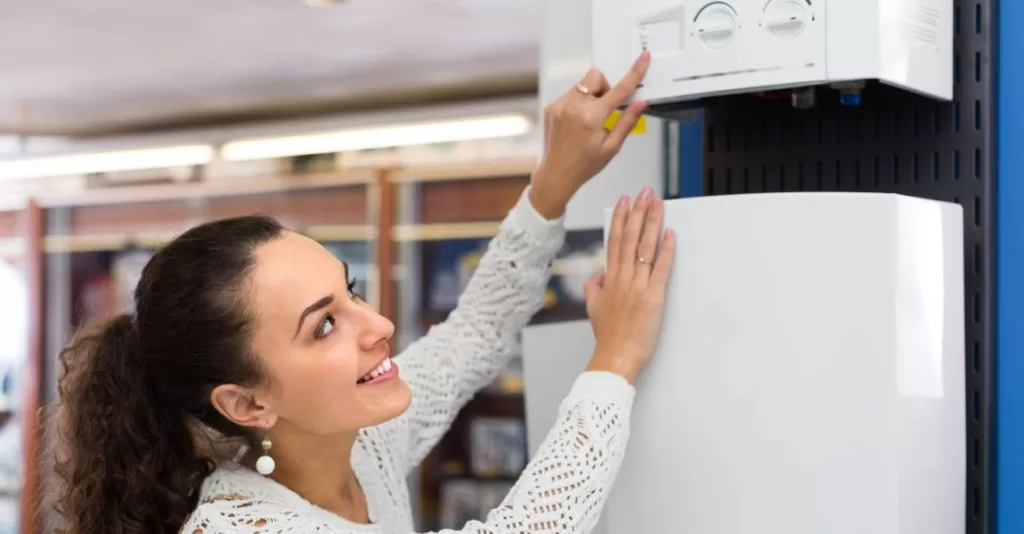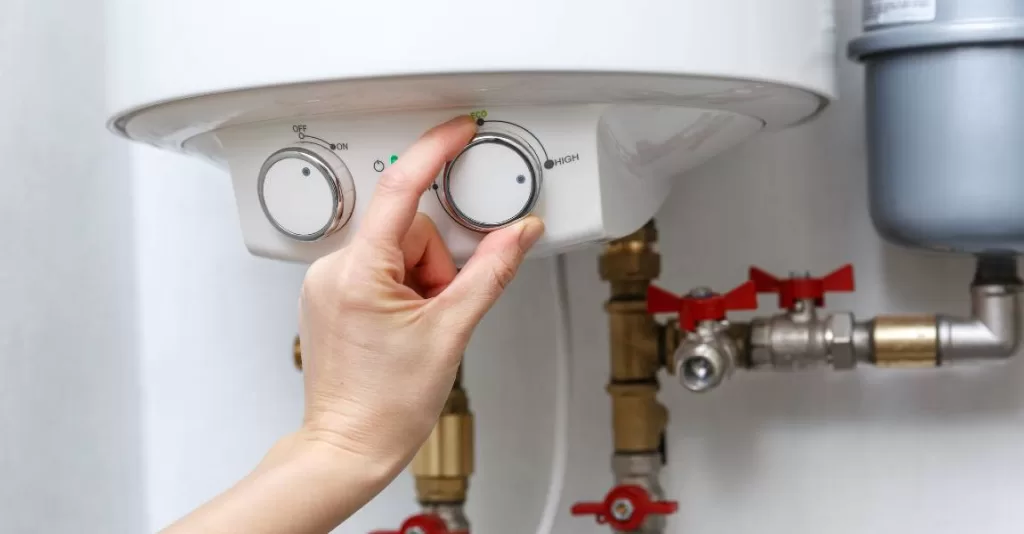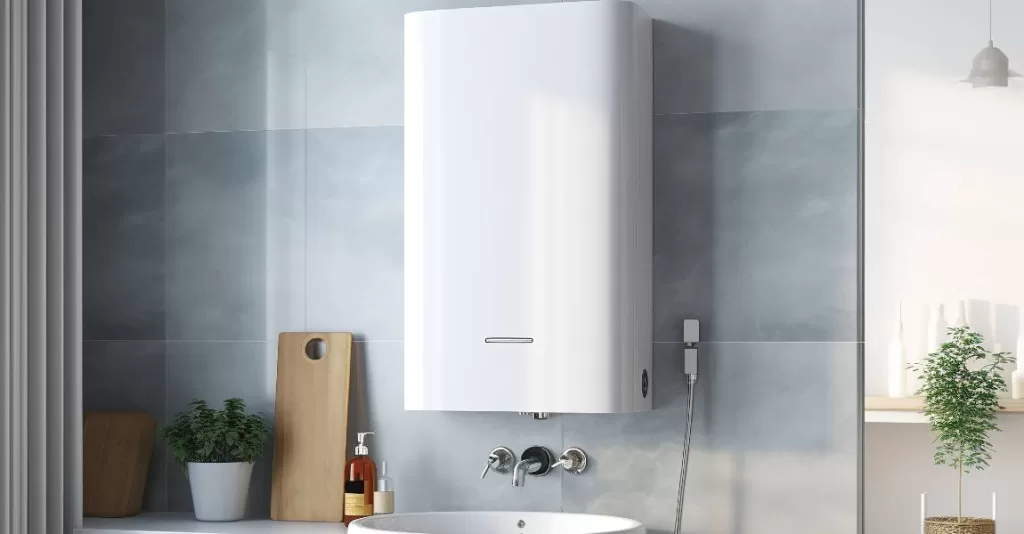In household utilities, few appliances are as essential and frequently utilized as the water heater. Access to hot water is a cornerstone of modern living, whether for a warm morning shower, sanitizing dishes, or tackling laundry. However, with the increasing emphasis on sustainability and energy conservation, the choice of water heater becomes more than just a matter of convenience—it’s a decision that impacts both environmental stewardship and financial energy efficiency.

What are the options for choosing the best energy-efficient water heaters?
As consumers, we’re inundated with options, from traditional tank-style heaters to innovative tankless systems, each boasting various features and efficiency claims. Amidst this plethora of choices, navigating the landscape to find the optimal balance between performance, energy conservation, and cost-effectiveness can be daunting.
In this article, we delve into the world of water heaters, exploring the different types available, understanding their respective efficiencies, and offering practical guidance on selecting the best energy efficient water heater tailored to your hot water needs.
Whether you’re a homeowner looking to replace an aging unit or a builder designing a sustainable structure, we aim to empower you with the knowledge needed to make informed decisions that align with your values and requirements. Join us on this journey as we unravel the complexities of water heating technology and pave the way towards a greener, more efficient future.
Table of Contents
What are the Different Types of Water Heaters Available?
Understanding Conventional Water Heaters
Conventional water heaters have been a popular choice for many years when it comes to heating water in your home. These water heaters typically consist of a storage tank where water is heated using electricity or gas. The heated water is then stored until needed, providing a steady hot water supply for various household tasks, a feature commonly found in standard electric water heaters.
Exploring Tankless Water Heaters
On the other hand, tankless water heaters are gaining popularity due to their energy efficiency and the way they heat water when needed. By heating the water only when you need it, tankless water heaters can help you save on energy costs and provide a continuous supply of hot water, embodying the principle of heating water when you need it.
Installing A Tankless Water Heater
Installing a tankless hot water heater provides an energy-efficient solution by heating water on demand, eliminating the need for a large storage tank. This installation requires proper sizing and professional expertise to ensure optimal performance and longevity of the unit.
Considering Heat Pump Water Heaters
Using less energy to heat water than conventional electric water heaters, heat pump water heaters can help lower your energy bills while still providing hot water for your needs. They transfer heat from the air outside the unit to the water inside the tank. This process is much more efficient than using electricity to heat the water, resulting in significant energy savings directly.
Heat pump water heaters often have higher upfront costs than traditional water heaters, but the long-term savings on energy bills can outweigh the initial investment. Additionally, many utility companies offer rebates or incentives for purchasing and installing a heat pump water heater, further reducing costs.
In addition to being energy-efficient, heat pump water heaters also have the added benefit of dehumidifying the air, making them especially useful in hot and humid climates. They are also quieter than traditional water heaters, making them a more environmentally friendly option for homeowners.
Overall, heat pump water heaters are a great option for those looking to reduce their energy consumption and lower their utility bills. Consider installing one in your home to enjoy the benefits of energy-efficient hot water heating.

How Can I Optimize the Best Energy-Efficient Water Heater?
Choosing Best Energy-Efficient Water Heater
When selecting a new water heater for your home, choosing the best energy-efficient option water heater that can meet your hot water needs while minimizing energy consumption is essential. Look for water heaters with high energy efficiency ratings to ensure optimal performance. Consider your household size and hot water usage habits when selecting a water heater. Tankless water heaters are popular for their energy efficiency and on-demand hot water capabilities.
Consider the water heater’s location and installation requirements. Proper installation by a professional can ensure optimal performance and energy efficiency.
Insulating your hot water pipes can also help reduce heat loss and improve energy efficiency.
Lastly, regular maintenance and inspections of your water heater can help maintain its efficiency and prolong its lifespan.
Flushing your water heater regularly can remove sediment buildup and improve its efficiency. Be sure to follow manufacturer recommendations and guidelines for maintenance to ensure proper function.
Overall, selecting an efficient water heater and following proper maintenance practices can help reduce energy consumption, save money on utility bills, and provide consistent hot water for your household. Choose the Most Energy-Efficient Water Heater.
Maximizing the Energy Efficiency of Your Water Heater
To maximize the energy efficiency of your water heater, consider insulating hot water pipes, adjusting the water temperature to a suitable level, and performing regular maintenance to ensure the system operates efficiently. These simple steps can help reduce energy waste and lower overall energy costs when using appliances like a standard electric water heater.
Comparing Energy Costs of Different Water Heating Options
Before deciding, compare the energy costs associated with different water heaters. While tankless water heaters may have a higher upfront cost, their energy-saving benefits can result in long-term savings on utility bills compared to conventional water heaters.

What Factors Should I Consider Before Buying a New Water Heater?
Determining the Amount of Hot Water Needed
Before purchasing a new water heater, assess the hot water your household typically uses. This information will help determine the water heater’s size and capacity to meet your daily hot water requirements effectively.
Assessing Water Usage Patterns
Consider your household’s water usage patterns, such as peak hot water usage times and the number of fixtures that require hot water simultaneously. Understanding your water usage habits can help you select a water heater that can efficiently provide hot water when needed.
Factoring in Energy Costs and Efficiency Ratings
Consider the energy costs associated with operating the water heater and compare the efficiency ratings of different models. Opting for an energy efficient water heater may require a higher upfront investment but can lead to significant savings on your energy bills over time.
Is a Tankless Water Heater the Right Choice for Your Home?
Understanding the Benefits of Tankless Water Heaters
Tankless water heaters offer several benefits, including on-demand hot water supply, space-saving design, and energy efficiency. By heating water only when needed, tankless water heaters can help you reduce water waste and lower your energy consumption, optimizing your hot water use.
Comparing Tankless vs. Conventional Water Heaters
When comparing tankless and conventional water heaters, consider factors such as energy efficiency, operating costs, maintenance requirements, and installation space, especially considering water heater options. Tankless water heaters may be suitable for homes looking to maximize energy savings and enjoy a continuous hot water supply.
Calculating the Energy Savings with a Tankless Water Heater
Calculate the potential energy savings of switching to a tankless water heater by comparing the energy consumption of your current water heater with that of a tankless model. While the initial cost may be higher, a tankless water heater’s long-term energy savings and efficiency can result in a more cost-effective solution for ensuring hot water use.

What are the Advantages of an Energy Efficient Water Heater?
Reducing Water Usage with an Efficient Water Heater
Efficient water heaters can help reduce water usage by providing hot water only when needed, minimizing standby heat loss from storage tanks, and optimizing energy utilization. Choosing an energy-efficient water heater can contribute to water conservation efforts and lower your overall water consumption.
Lowering Energy Costs with Energy-Efficient Options
Energy-efficient water heaters are designed to operate more efficiently, resulting in lower energy costs than traditional models. Investing in an efficient water heater allows you to enjoy hot water for your daily needs while reducing your utility bills and environmental impact, highlighting the benefits of efficient hot water use.
Choosing the Best Water Heater for Long-Term Savings
When selecting a water heater for your home, consider the long-term savings associated with options like heat pump and tankless water heaters. While the upfront cost may be higher, efficient water heaters like gas water heaters can provide significant savings over their lifespan through reduced energy consumption and lower operating costs.
Conclusion:
When selecting the best energy-efficient water heater for your hot water needs, it’s essential to recognize the pivotal role this decision plays in environmental sustainability and economic prudence. By understanding the various types of water heaters available, assessing their efficiency ratings, and considering household size, usage patterns, and budget constraints, you can choose one that meets your immediate needs and contributes to long-term energy savings and reduced carbon footprint.
As you choose the ideal water heater, we urge you to prioritize energy efficiency and environmental responsibility. Every conscious decision towards adopting sustainable practices, no matter how small, contributes to a collective effort to safeguard our planet for future generations. Whether opting for a high-efficiency heat pump water heater, embracing solar thermal technology, or practicing mindful water usage, every action counts.
Furthermore, we encourage you to stay informed and engage with reputable sources of information, seek professional guidance, and consider consulting energy audits to tailor your choices to your specific circumstances. By investing time and effort into making informed decisions today, you pave the way for a more sustainable and efficient tomorrow.
Together, let’s commit to prioritizing energy efficiency in our water heating solutions and take proactive steps toward a greener, more sustainable future. By choosing wisely today, we enhance our quality of life and contribute to the well-being of our planet and future generations. Let’s harness the power of innovation, technology, and responsible stewardship to ensure that every drop of hot water is a testament to our dedication to sustainability.
Choose wisely. Act responsibly. Embrace efficiency. Let’s make a difference, one hot water heater at a time.
What Factors Should I Consider When Choosing a Water Heater for my Home?
When choosing a water heater for your home, you should consider factors such as water use, efficiency, type of water heater, hot water needs, and the size of the water tank.
How Do Water Heaters Work?
How Do Water Heaters Work-Water heaters heat water in a tank using a heating element or burner, similar to how a gas water heater operates. The hot water is then stored in the tank until it is needed.
What Are the Different Types of Water Heaters Available?
The different water heaters available include conventional storage water tanks, tankless or demand-type water heaters, hybrid water heaters, condensing water heaters, and solar water heaters.
How Can I Determine the Efficiency of a Water Heater?
A water heater’s efficiency is determined by factors such as the energy source used, the heating mechanism, the insulation of the tank, and the overall design.
Are Tankless Water Heaters More Energy-Efficient Than Traditional Water Tanks?
Tankless water heaters are generally more efficient than traditional water tanks because they heat water only when needed, eliminating standby heat loss.
How Much Hot Water Can I Expect From a Water Heater?
The amount of hot water you can expect from a water heater depends on the size of the tank, the efficiency of the heater, and your household’s hot water usage patterns.
Should I Consider Replacing my Old Water Heater With a More Energy-Efficient Model?
If your old water heater consumes a lot of energy and does not meet your hot water needs efficiently, it may be worth replacing it with a more energy-efficient model.
Contact us Today!
Upgrade your home’s water heating system with JD’s Plumbing, Heating, and Air Conditioning today! Make a conscious choice towards energy efficiency by selecting the best water heater tailored to your needs.
Our team is here to guide you through the selection process, offering expert advice on choosing the most energy-efficient model that fits your budget and lifestyle.
Say goodbye to high utility bills and hello to savings while reducing your carbon footprint. Contact us now to schedule a consultation and take the first step towards a greener, more efficient home.





